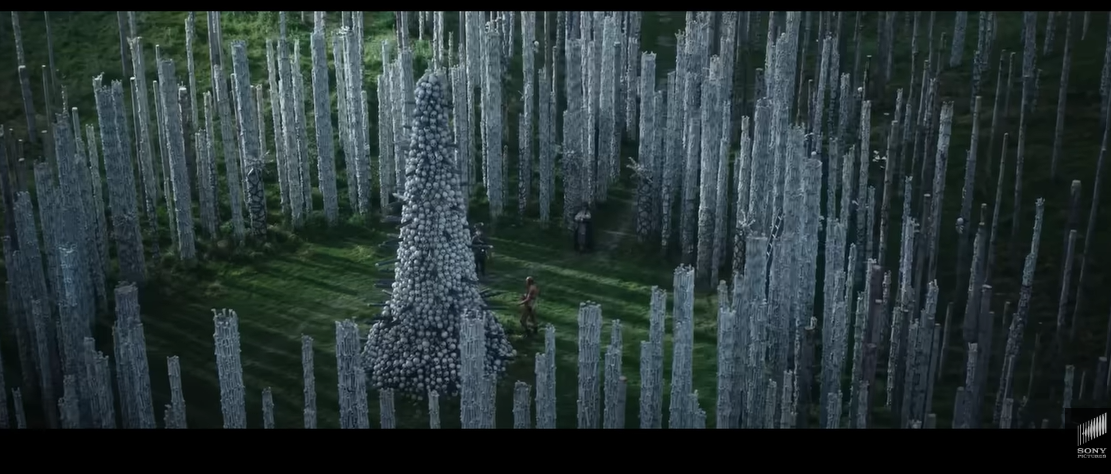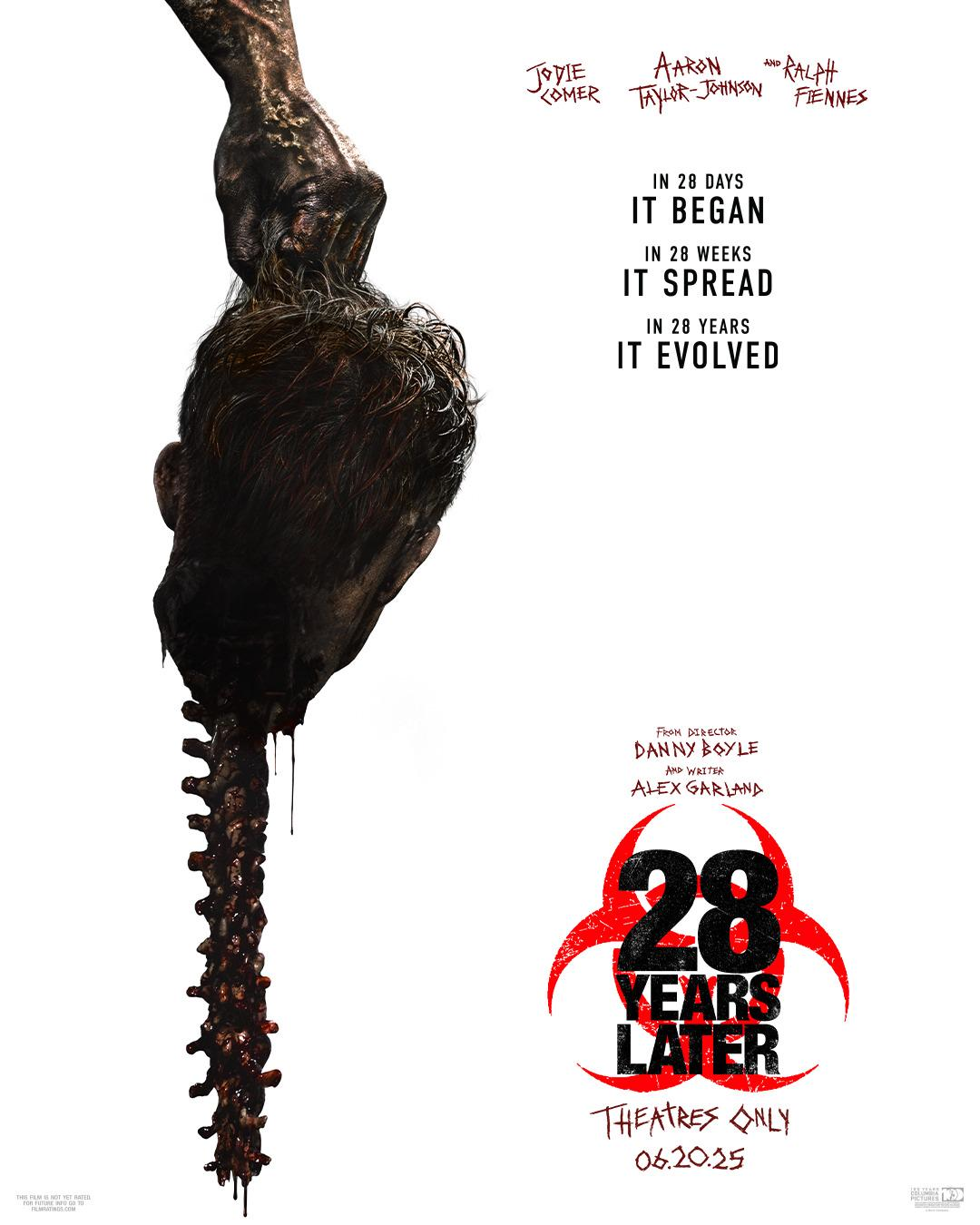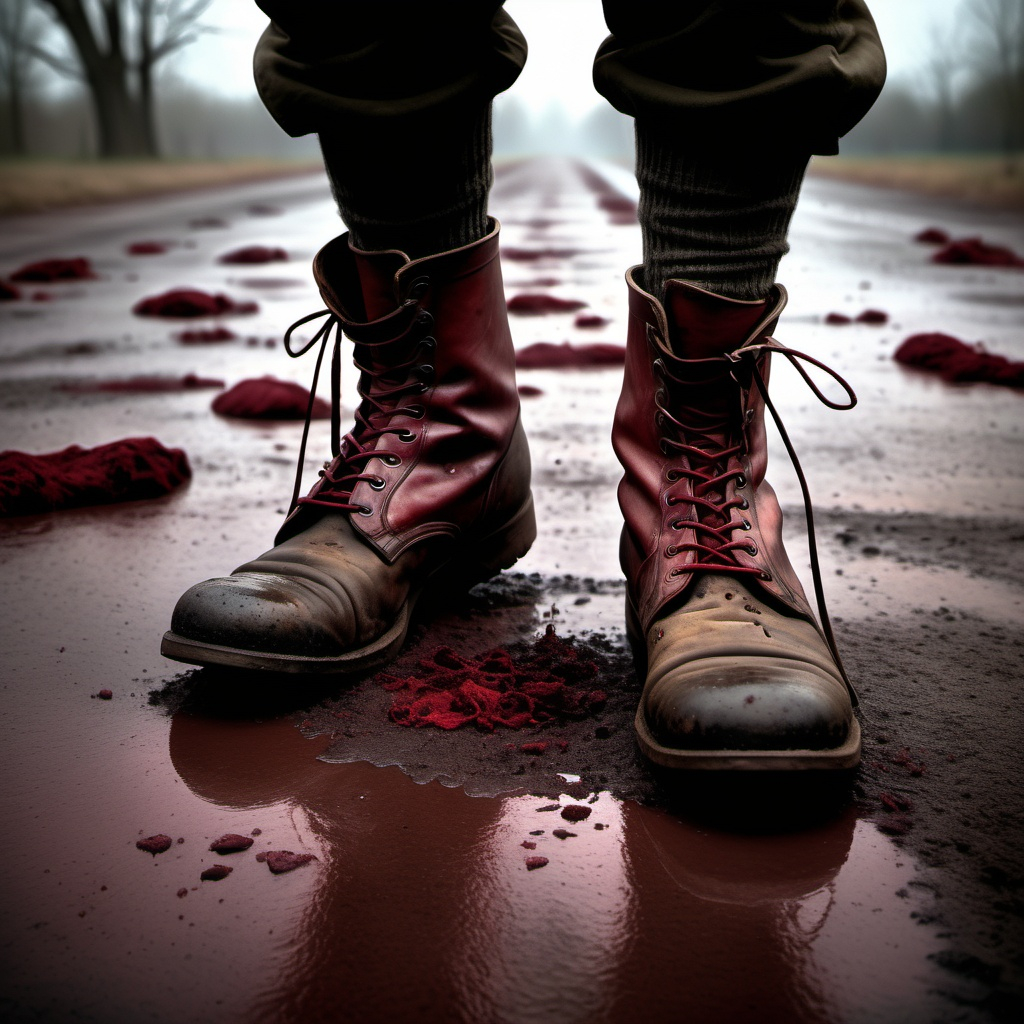There's No Discharge in The War: Waiting for '28 Years Later'
17 comments
I'm so excited about the upcoming Danny Boyle sequel to his zombie films '28 Days Later' and '28 Weeks Later' - called '28 Years Later', not least because we've had to wait so long for a follow up. The trailer came out this week, and it does give some hints at what's to come. Whilst the first two are about humanity's downfall and hope for survival, this follow seems to be more about humanity's descent into chaos, if the temple of skulls is any clue at all.

From the trailer
The poster, too, suggests something new - the virus has evolved, giving the filmmakers and writers an opportunity to create something a little different from the first two. 28 Days Later was an evolution in zombie films itself - it's zombies were brutally fast, full of rage, not the loping, ambling corpses of previous zombie films.

Poster from Wikipedia here
"It began 10,228 days ago. Days became weeks. Weeks became years," the onscreen text reads. The ongoing mood of the apocalypse is emphasised with the 1915 recording of Rudyard Kipling's 'Boots', read by actor Taylor Holmes. It emphasises the horrifying reality of it's relentlessness with the repetition and rhythm mimicing the march of soldiers. Similiarly there has been no respite for the survivors, but perhaps only a long march to hell and insanity. First, watch the trailer so you know what I'm talking about.
Clearly, the question regarding what humanity will become is at least in part answered by the trailer - agriculture has gone back to basics, technology has reverted to arrows and ploughs, death is still very present, and basical survival is a part a daily part of life for those remaining on a small island cut off from the mainland. Whilst we still have yet to discover why they leave this sanctuary, we certainly know what's out there - the horror of both zombie and human alike.
What I'm interested in however is Rudyard Kipling's poem - what a brilliant, brilliant choice for the soundtrack of the trailer! Apparently, the NAVY Seres program used this recording exactly as a kind of psychological test, playing it over and over in their cell.
I went through USAF SERE in 1983. I listened to this over and over all through the night in a cold wet cell wearing a wet flight suit and getting a bucket of water every time I leaned agains the wall. The poem does stay with you. - F4Phantom GIBNov 2012, via Allpoetry.com
And it's this recording in particular - the actor's frenzied, manic voice lifts as if screaming the repetitive lines at the end: 'there's no discharge in the war! there's no discharge in the war!'. You cannot get out of it.
Please read the text version that I've included below - the mic drop in the last two stanzas takes my breath away, as many poems about war do. I'm reminded, in part, of Wilfred Owen's poem 'Dulce Et Decorum Est' and the rhythmic iambic pentameter that mimics the marching men and describes the abject march toward death. This too is a poem about suffering.
Bent double, like old beggars under sacks,
Knock-kneed, coughing like hags, we cursed through sludge,
Till on the haunting flares we turned our backs,
And towards our distant rest began to trudge.
Rudyard Kipling: Boots (From AllPoetry.com
INFANTRY COLUMNS
We're foot—slog—slog—slog—sloggin' over Africa —
Foot—foot—foot—foot—sloggin' over Africa —
(Boots—boots—boots—boots—movin' up an' down again!)
There's no discharge in the war!
Seven—six—eleven—five—nine-an'-twenty mile to-day —
Four—eleven—seventeen—thirty-two the day before —
(Boots—boots—boots—boots—movin' up an' down again!)
There's no discharge in the war!
Don't—don't—don't—don't—look at what's in front of you.
(Boots—boots—boots—boots—movin' up an' down again);
Men—men—men—men—men go mad with watchin' em,
An' there's no discharge in the war!
Try—try—try—try—to think o' something different —
Oh—my—God—keep—me from goin' lunatic!
(Boots—boots—boots—boots—movin' up an' down again!)
There's no discharge in the war!
Count—count—count—count—the bullets in the bandoliers.
If—your—eyes—drop—they will get atop o' you!
(Boots—boots—boots—boots—movin' up an' down again) —
There's no discharge in the war!
We—can—stick—out—'unger, thirst, an' weariness,
But—not—not—not—not the chronic sight of 'em —
Boot—boots—boots—boots—movin' up an' down again,
An' there's no discharge in the war!
'Taint—so—bad—by—day because o' company,
But night—brings—long—strings—o' forty thousand million
Boots—boots—boots—boots—movin' up an' down again.
There's no discharge in the war!
I—'ave—marched—six—weeks in 'Ell an' certify
It—is—not—fire—devils, dark, or anything,
But boots—boots—boots—boots—movin' up an' down again,
An' there's no discharge in the war!
'Try to think of something different', the speaker screams to himself, 'don't look at what's in front of you', because 'men go mad with watchin' em'. This evokes the psychological toll of living with repeated death and destruction repeatedly. Numb to horror, they'd be haunted by the cycle of killing or being killed, and the loss of humanity that comes along with that. They can survive, perhaps, ''unger, thirst, an' weariness', and have designed ways to rebuild a semblance of the old world with crops and scavenging, but the undead are still something that poses a constant threat.
Perhaps too the survivors have been on a constant sort of march - endless trudging and, like the repetition of "boots—boots—boots—boots", survival has been a mechanical, ceaseless plodding. For thirty years, there would have been scavenging for supplies, evading threats, and searching for safe zones. To give up - to 'discharge' onesself from the war against death - is to either given in to madness or to die. One can keep going, for children, for those they love: ''taint - so - bad - by day because o'company' - but the endless apocalyptic night denies the possiblity of an end to the suffering. The threat is ever present. If you're watched the Walking Dead, you'd know how many times a supposed safe zone was built, only to be disassembled again. Safety is always fleeting.

Image by Open AI, prompt by me
Yet trying to survive, perhaps, is a coping mechanism. Counting bullets and avoiding looking directly at hell is a ritual - in the zombie apocalypse, this too would be the case. Maintaining weopons, scouting routes, rationing supplies, maintaining fences and boundaries, manning look outs - these all help maintain a grip on reality. Over time, perhaps, the zombies are the background noise - not 'fire devils, dark, or anything, but boots-boots-boots'. This speaks to how horror becomes normalised, leaving the struggle and suffering as the true enemy. In Boyle's trailer, clearly the threat is not only the zombies, but the humans going mad amongst them.
I can't believe I have to wait til mid next year to see how this plays out - and maybe longer, since Australia never seems to get the same release date. Oh well - I'll be counting bullets and trying not to look at what's in front of me - the long, long, wait to see what thirty years has done to England, and of course, whether Cillian Murphy has become a good looking zombie.
With Love,

Are you on HIVE yet? Earn for writing! Referral link for FREE account here
Comments